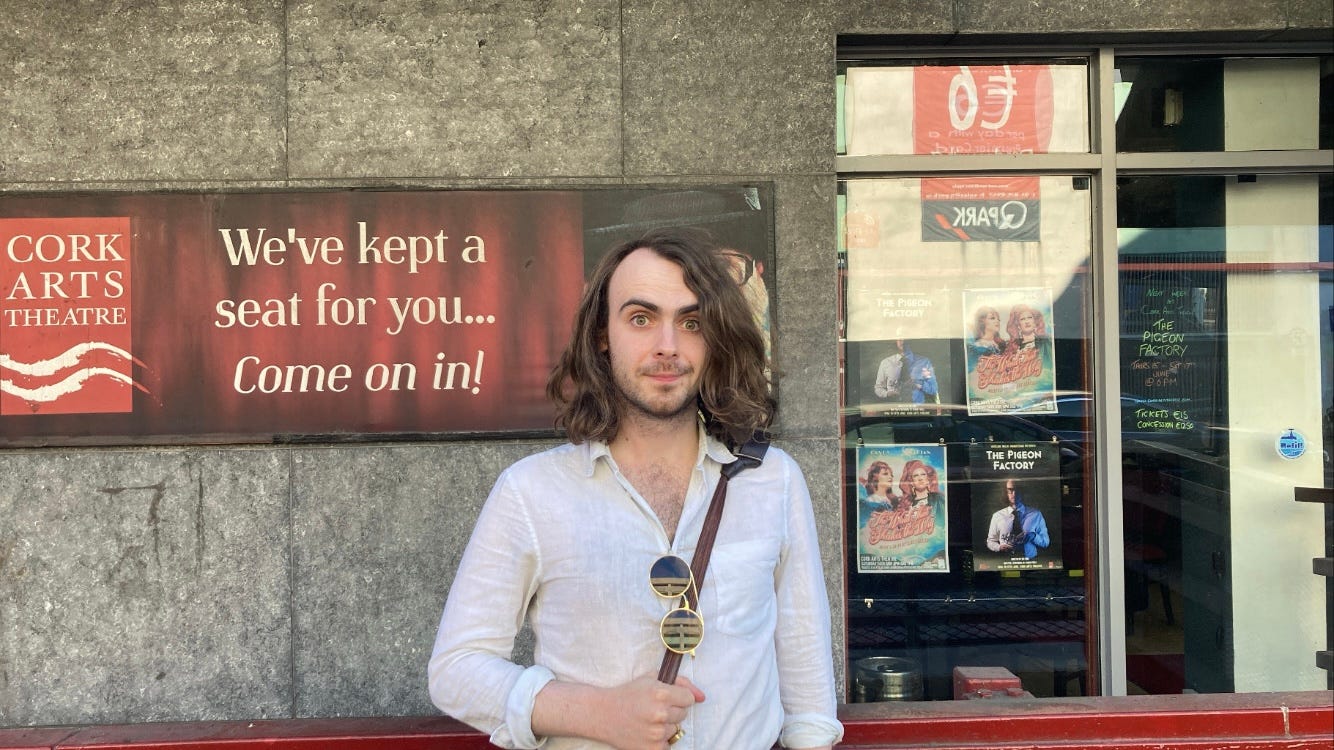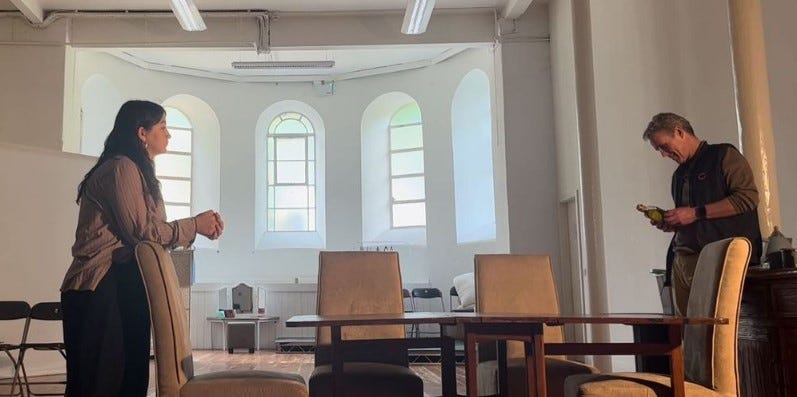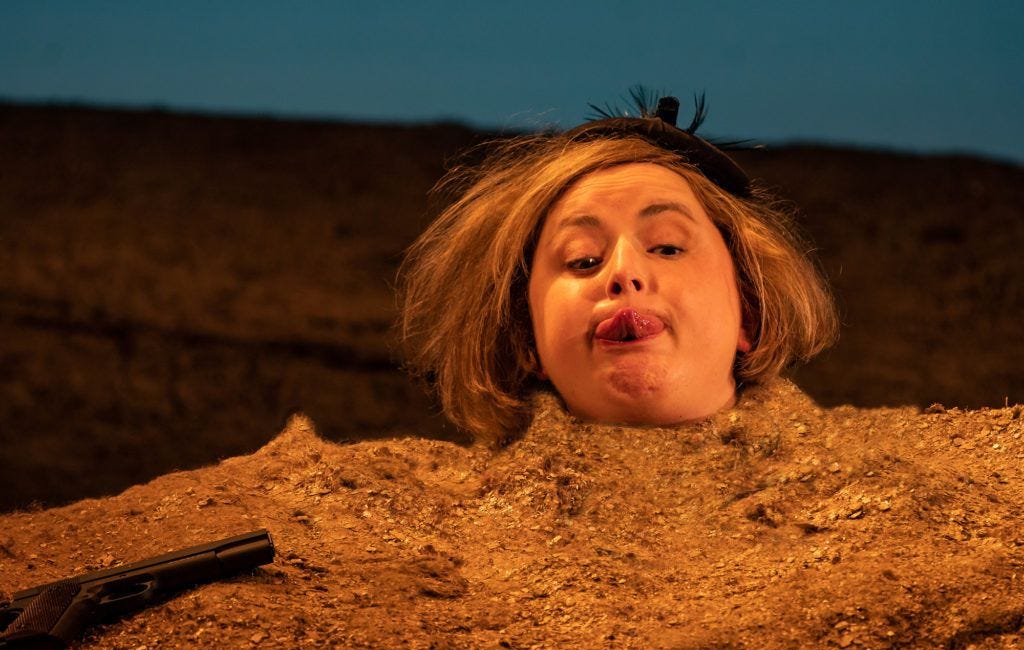A tale of two cities and three young theatremakers
As part of the Cork Midsummer Festival, which kicked off this week, three emerging talents in Cork's theatre scene were provided with support to stage their new plays.
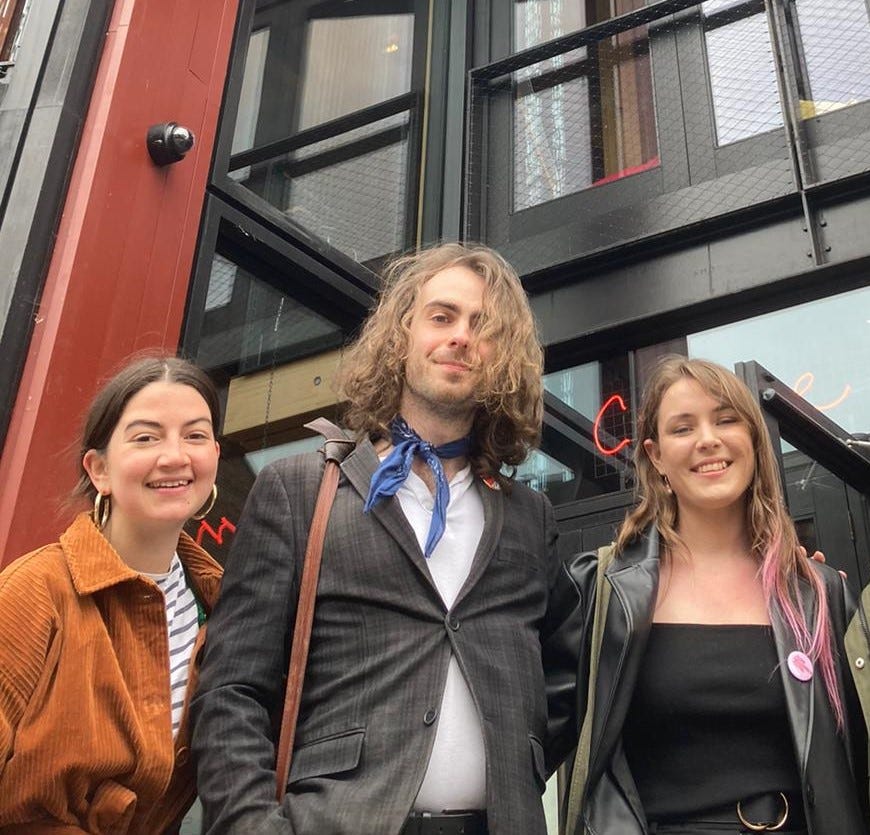
The first step might be the hardest, but at least it suggests progress, a move in the right direction. Motion. Direction. Forwardness.
But what about all those tentative moves that lead up to the first step? For young theatremakers who are fresh out of college, it can be both daunting and overwhelming to navigate the big stage while also corralling their creative ideas into shape and getting on with the business of everyday life.
Enter stage left Tales of Two Cities, an artist-development programme aimed at very early career theatre artists and designed to offer supports to those cutting their teeth in theatreland. The two cities in question are Cork and Bristol, and the organisations behind Tale of Two Cities are Cork Midsummer Festival and The Everyman (in Cork) and MAYK and the Bristol Old Vic, in Bristol.
In 2022, the first year of the programme, three young theatremakers based in Cork, Rosa Mäkelä and Éadaoin Fox, working in collaboration as Loom, and Aaron O’Neill were chosen fom an open call. All three have shows in this year’s Midsummer Festival. Tripe+Drisheen caught up with them ahead of the festival to talk about those first steps, making theatre in Cork, what they learned in Bristol and where they are headed.
Rosa: making the jump
Rosa Mäkelä, originally from Headford in County Galway, has been living in Cork since she started college in 2016. Her professional involvement in theatre started at the age of 17, with a production of The Pillowman.
“We toured for a good while with it. We went to The Everyman, and that was also my first time ever in Cork” she says.
“I walked around UCC, and I was like ‘Oh, Cork’s class, I want to go here for college!’ And then the next year, I went to UCC to study Drama and Theatre studies so that’s how I met everyone.”
Rosa was part of a small theatre community in UCC, centred around the Dramat society, where she met Éadaoin and Aaron. However, she found it difficult finding her way when it was time to leave college.
“It felt a little bit like the jump from being a theatre graduate in UCC, to being someone who’s actually working as a professional in theatre, and initially that jump was daunting it was like I didn’t quite know what the links were,” she says.
Does college prepare you for everthing? Can it?
“I feel like when I was in college or when I had just left college, the concept of sending someone an email is very scary, especially someone that you don’t know!”
Éadaoin: getting help from Cork’s pros
Éadaoin Fox was eager to get work after college, and founded Mank Productions with Arann Blake soon after she graduated. Through that, in early 2020, she put on two plays, Earwig in the Roundy in January, and Electra in the Kino in February. This experience was very useful in getting to know people locally.
“I've been very lucky to have like met local industry professionals who have been so helpful and just very interested in Cork creatives and who are up and coming,” she says.
“I was putting on productions for about a year, so I did two productions and that was made just with people I knew from college, I didn't really know anyone on a wider scale. But when I did those productions I ran into people, I think Quarter Block Party was on at the same time we were doing Electra, in the same venue, in the Kino. We had some nice conversations with them.”
However, the pandemic and the restrictions ushered in over a period of years set everyone back. Éadaoin, though is hopeful.
“I think the arts scene really has a lot of potential in Cork, and particularly when I was making work in that year after college, before the pandemic hit in 2019,” she says. “And you know, it was all really promising but it seems like things are getting back to normal now.”
Aaron: “Dublin was tough”
Aaron O’Neill was a few years ahead of Éadaoin and Rosa in college and was also involved in the UCC theatre community. Initially hoping to be an actor, Aaron moved to Dublin after college to pursue roles there, which proved difficult.
“It was tough going straight out of college because I was just trying to be an actor, that’s where I thought my future lay. What I did after college, I made the terrible mistake of moving to Dublin,” he says.
“Dublin was tough, Dublin’s tough anyway not only for acting but for any line of work, because the problem was, which I didn’t really think of at the time, I was starting to get roles and work down here in Cork, move up to Dublin and I’m a nobody, no-one knows who the hell I am, no-one is casting me off anything that they’ve seen so I could barely even get into the room in most places.”
Aaron moved back to Cork, decided to get into writing, and founded Oh!Scare Wilde Productions.
“That has proved more fruitful, artistically and commercially,” he says. Through this company, they put two plays on at the Scene and Heard festival in Dublin.
Tales of Two Cities and a trip to Bristol
Rosa says she found it very difficult to navigate the world of theatre after college, but Tales of Two Cities gave her the direction she needed.
“Tales of Two Cities was really great in that way because it was like, here are all these people that you probably want to ask all the questions you want to ask, and here they are to listen now’. I’m sure those people would have answered my questions regardless of the program, if I had even known who they were and how to contact them, but I guess I didn’t know that” she says.
However, Éadaoin finds that post pandemic, there has been an openness to new artists and a willingness to work with new graduates and emerging artists.
“I think that is because everyone is so open and willing to like get to know all the artists,” she says.
“Everyone wants to get to know everyone, see who's around, and just fostering Cork culture and arts again, you know,” she says. Being a part of a Tales of Two Cities allowed Rosa (as well as Éadaoin and Aaron) to see the inner workings of how art is made in Bristol and Cork. The mentoring aspect she says was hugely beneficial.
“We were really lucky to have that,” she says.
Lack of space
The biggest difficulties in Cork are linked to access to spaces. Aaron explains that that was the biggest difference he saw when travelling to Bristol.
“There’s value in having more cultural spaces, I mean, Bristol is quite similar in size to Cork, but it has a lot more theatre spaces and performance spaces and that really showed. It’s just a really thriving scene there.”
Loom’s work, until now, has been on the experimental side and on the limits of theatre and performance art. One of their pieces, The Future is Clean and Round, was borne out of a performance and art installation that Rosa originally put on in Galway and is bringing to the Prague Quadrennial. Rosa says a lack of access to spaces influenced her experimentation. Loom’s last play, Strain, took place on Myrtleville Beach last October, far from any theatre.
“When we did that show on the beach, it was ‘this is so great and this is so what we want to be doing’ but also, it was easier to do that than to put on a show in a theatre,” she says.
“We probably couldn’t afford to put on a show in a theatre, and we probably couldn’t afford the team that you need to put on a show in a theatre. Whereas on the beach we just had ourselves, and a producer.”
“I feel like when there’s restraints on a community, and I feel like there’s always restraints on the arts, when there is people have to get creative and creativity is often about experimenting, you know what I mean? So I think it’s happening out of necessity sometimes, which is exciting in one way”.
The lack of spaces can also be a hindrance to productions, in terms of being able to rehearse, and putting a production on. Aaron would have liked to put on the plays from the Scene and Heard Festival, a fringe theatre festival in the Smock Alley Theatre in Dublin, in Cork, but that never materialised.
“The Relatability Engine, which we did in Scene and Heard, that was one we really tried to get in Cork, we fought tooth and nail to try and get it on somewhere and it just didn’t happen,” he says.
“(There) Wasn’t enough theatre space, wasn’t enough resources, not enough money. That ties into the lack of spaces, it’s really hard to get small things done.”
“There are a lot less spaces than there were a couple of years ago, and the spaces that are there, they’re expensive. If you don’t have funding, you’re not really getting in. We’ve just been making do with a few favours here and there, different rooms you could get, there’s been a couple of times that we’ve had to cancel rehearsals, we didn’t have a space,” he says.
“And that makes it really hard, not having that security of a room, and even the rooms we’re in are not necessarily adequate, they’re just a room, and ideally you need some kind of rehearsal space of some description. I find it hugely limiting, so yeah, I just think that something is seriously needed to improve.”
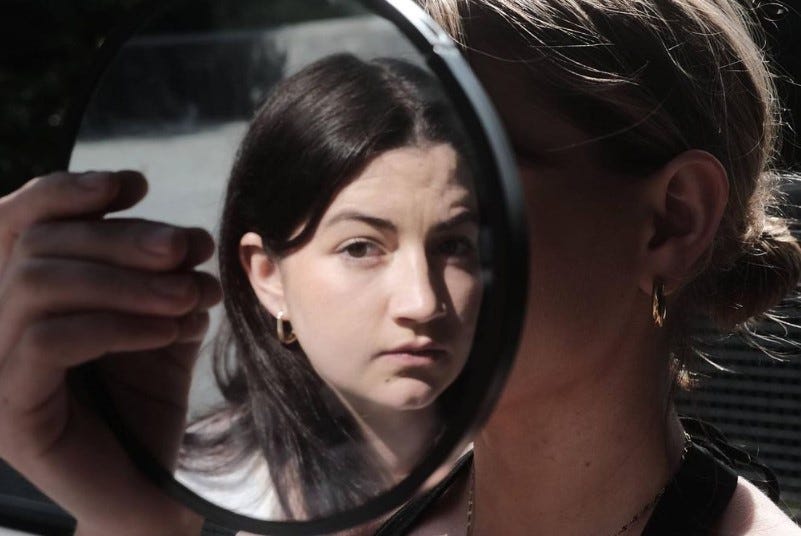
Future positive
Despite all of the challenges that young theatre makers face in Cork, Éadaoin is optimistic and positive about the future.
“I think it's going in the right direction. I think everyone's in the right headspace and coming out of pandemic now,” she says.
“But obviously, you know, the venue crisis is no one person's responsibility. As culture and as things start to grow after pandemic, that will hopefully follow.”
Aaron also thinks that things are improving for artists in Cork, and steps are being taken to prevent creatives from emigrating.
“It is getting better, last year the Arts Council introuced the Basic Income for Artists which was a very positive step, and while it was only a pilot scheme and not everyone got it - I didn’t get it - but that was a positive step,” he says.
Aaron says that if applied properly and rolled out to all artists the income scheme could add up to making Cork and Ireland a place where more artists can make a livelihood.
“We love to go on about Irish writing and Irish artists and we plaster up all our great writers, our Yeats, our Joyce, our Beckett, what’s interesting is most of those writers aside from Yeats got out of Ireland as fast as possible.”
Aaron thinks we can learn from the Britain in this regard. While it’s a much bigger market, he thinks a lot more can be done here.
“Maybe you could say it’s a gap in the market post-Brexit, to get our foot in the door theatre wise, because there’s so many amazing artists here and so much fantastic theatre, either stuff that’s being put on or people who are around who are not getting that platform or opportunity. We should be ten times more ambitious about what we want to do, arts wise, here.”
Aaron O’Neill’s The Pigeon Factory, is a new one-man show that explores ideas of work, family, and finding purpose in a broken society through the lens of absurdity, pathos, and pigeons. It runs this week from Thursday, June 15 to Saturday, June 17 in the CAT Club. Tickets and more information here.
Loom Productions’ This is You explores the roles we play, for ourselves and for others. It runs from Wednesday 21 to Saturday 24 of June in St. Luke’s Crypt. Tickets and more information here.
Theatre review: Up to your neck in Happy Days
With Happy Days, Beckett seemingly wanted to test the limits of the actors, and most definitely the patience of the audience. But, Aherla’s Siobhán McSweeney has got more acting chops in her, well chops, and is outstanding as Winnie, the main character.




